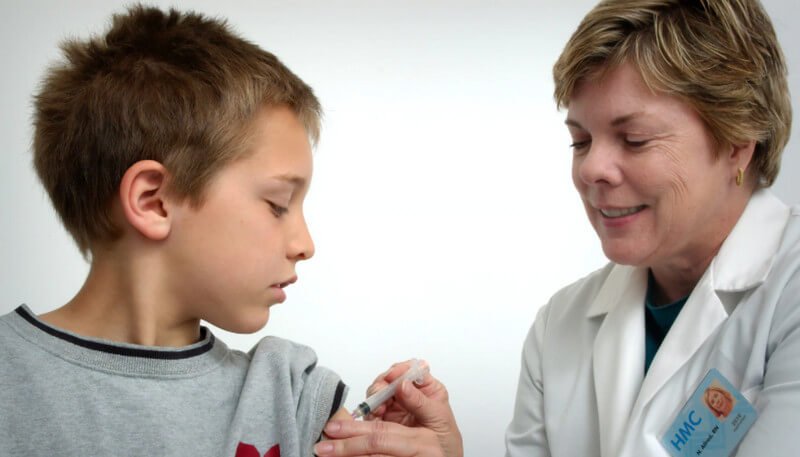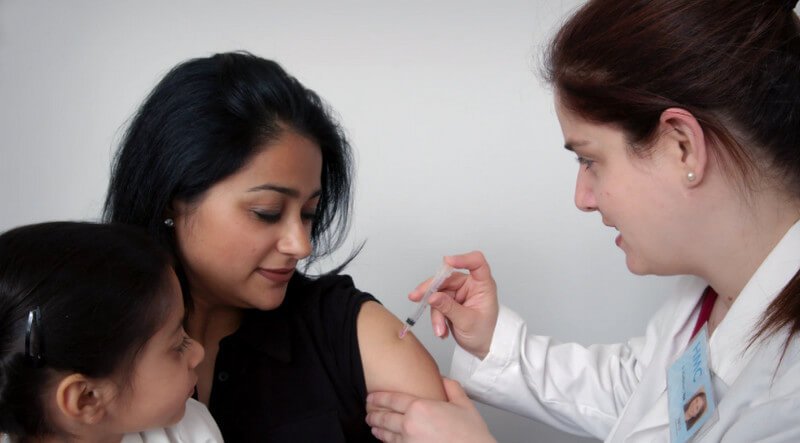10 Direct Entry Nurse Practitioner Programs For Non Nurses
There are a few nurse practitioner programs in the U.S. We have listed some of the most affordable online np programs for nurses and non-nurses. The list has online family nurse practitioner programs and some other related online nurse programs.
So, uptight to know some of the best online NP programs. We always ready to spill the beans for our readers.
What are The Nurse Practitioner Programs?
Nurse Practitioner Programs is a next-level training for nursing or medical students to get their medical carrier to the next level. The Nurse Practitioner program is to articulate young nurses to move to the father step of nursing or doctoral degree.
In this program, the nurse has to work under a doctor as a prescribed medication, diagnoses illness, examine patients and some relevant medical duty that a nurse has to perform while training. In fact, 20 states of the U.S offer MNS programs and PA and NA degrees without working doctors.
Types of Nurse Practitioner Degrees and Programs

Mainly, The MNS programs bestow almost thirteen degrees in the direct-entry MSN programs for AP and NP specialties etc. The following are the generally well-known NP degrees.
1 # Pediatric Nurse Practitioner
What is the Pediatric Nurse? Basically speaking, the pediatric nurse practitioner is an internist that a professional in care to newborns, toddlers or pre-schoolers.
2 # Family Nurse Practitioner
What is Family Nurse? Virtually the family nurse practitioner is an expert in dealing with all medical healthcare professional treatments.
3 # Adult Nurse Practitioner
The adult nurse practitioner (ANP) is specialized in the healthcare of adults of age 12 or over. The main promo of these nurses is to preventive care and health promotion and disease prevention of adults.
4 # Geriatric Nurse Practitioner
The Geriatric Nurse also know as Gerontological Nurse Practitioner focuses on nursing under the health care providers. In the U.S the Geriatric Nurse perform five duties rehabilitating patients after thieving injuries, conduct screen test, educate patients on pain management and much more.
5 # Women’s Health Care Nurse Practitioner
Basically speaking, these types of nurses are experts in taking care of women’s healthcare issues. The basic salary of a Women’s Health Care Nurse is approx $90K. The WHNP nurse works in OB-GYN clinics, family planning clinics and Planned Parenthood centers.
6 # Neonatal Nurse Practitioner
What is a Neonatal Nurse? This medical practitioner takes care of newborns in the first 28 days they trained to care for a healthy newborn. It’s one of the best direct entry MNS programs for nursing students.
7 # Acute Care Nurse Practitioner
What is Acute Care Nurse Practitioner? The ACNP is trained and skilled to help acutely ill patients within the inpatient hospitals including emergency treatment or intensive care unit.
8 # Occupational Health Nurse Practitioner
The OHNP skilled in the prevention and treatment of illness, stress, injuries from the local environment. They create a passage to the workplaces in an effort to discover the possible hazards.
9 # Certified Nurse Midwives Nurse
The CNMs are skilled nursed for women health care to bestows for women lifespan comprehend pregnancy and the postpartum period along with birth control information. How do you become a certified nurse-midwife? For this, you’ve to enroll in direct entry MNS programs in nursing for 1 to 2 years. A registered nurse and gain experience and then Apply for the ACMN program in midwifery.
10 # Certified Registered Nurse Anesthetist
The Nurse Anaesthetists are trained and registered nurses with a doctorate who specializes in oversight of anesthesia. How long does it take to become a certified nurse anesthetist? It takes almost seven to eight years to become CRNA.
Chart Flow Of Becoming Nurse Practitioner
The straight fire of chart flow of becoming a nurse practitioner. This helps you understand what has been done for becoming a nurse practitioner and NP specialties.
To become a registered nurse practitioner follow this chat flow of nursing.
Infographic: Source
Phase To Becoming Nurse Practitioner
1 # To Become a Registered Nurse
The beginning of a carrier as a nurse practitioner is becoming a registered nurse. For this, you’ve to join an NP program or direct entry MSN programs, There are lots of medical institutions which provide medical bachelor degree with approved training programs.
Currently, most of the training educational trajectories institutions united the steps of becoming NP with a degree. Some of them bestow direct entry nurse practitioner programs for non-nurses with a bachelor’s degree.
2 # Be Worthy of Bachelor’s Degree In Nursing
Gaining a nursing degree also a milestone for NP’s a proviso to get a degree for graduate studies for getting high-paid nursing jobs. In bachelor’s, degree institutions mix all courses to teach skills relevant to treatment and communication and a lot more.
3 # Collect Experience For 1 To 2 Years
There are many potential paths for a nurse in and earning advanced practice. Some of the medical students think about going to nursing school is the most important thing. But after taking a bachelor’s degree in nursing the most efficient thing is collecting experience from healthcare associations as a registered NP it necessary to get nursing experience certified.
There are lots of impacts of getting experience because medical institutions do not teach you all about nursing especially practical things include how to take address a variety of patient problems and much more.
4 # To Become An NPS Candidate Must Have Graduate Degree
Getting a graduate degree is the most efficient for a nurse practitioner. Because the value of nursing certification is more than anything in nursing. Lots of nursing schools offer students to collect an experience certificate with MSN programs while completing school.
A Master of Science in Nursing degree for NP’s is a minimum requirement for getting nursing jobs.
Direct Entry Nurse Practitioner Programs For Non-Nurses

There are various healthcare associations that bestow direct entry MSN programs for nurse practitioners for nurses and non-nurses. Here we’ve listed some of the NP programs for non-nurses.
1 # Rush University
The Rush University is ranked 1 in the U.S news which simply means it’s one of the best nursing schools for earning an NP degree as a non-nurse. This nursing institute focuses on clinical leadership and prepares students to sit for the NCLEX (RN licensure exam) and Clinical Nurse Leader certification.
The quick facts of MSN for non-nurse include Full-Time programs, location is on-campus, the program length is 2 years, and the class size is 76 with a tuition fee of $995 per credit hour.
For more information: ( Request Information Form )
2 # University of Rochester
Rochester offers Accelerated Master’s Program for Non-Nurses (AMPNN) program. If you already own a bachelor’s degree you can sailing pursue a nurse practitioner program. At first, they trained you for you’ll prepare for the NCLEX exam to clear the registered nurse.
The benefits of getting your degree from the University of Rochester of nursing are connected with the University of Rochester Medical Center. Lots of graduates have employed with the medical center. The tuition fees for this MSN program will be $23K per semester and $1510 per credit hours.
for more information: (Request Enquiry Form )
3 # Marquette Unversity
The Marquette Unversity also an excellent college of nursing they furnish a nursing program for non-nursing students. The 75 Credit Program is built for non-nursing graduates in which universities prepare you to fight the NCLEX examination.
There is also an online direct entry MSN program for students along with the on-campus class in Pleasant Prairie, Wisconsin. The prospective graduates have to clear a nursing program via Nursing CAS. After that, your application will be reviewed.
For More Information contact to Program Advisor via email : (taylorrose.pamperin@marquette.edu)
4 # University Of Washington
The UW of nursing school bestows great appointees for non-nursing students for on-campus or off-campus. The institute is specialties. The University of Washinton is a great place to live and get educated. The MSN program is focused on community health nursing. For non-nurses is one of the best platforms to become a nurse practitioner.
You’ll get reasonable tuition rates for nursing with the hub of technology in nursing. The time period of the program is 1 to 2 years.
For more information ( UW Nursing )
5 # Johns Hopkins University
The JHU school of nursing gives direct entry MSN programs for coeds the academy provides enhanced bedside nursing education and training and the necessary tools to advance into leadership. Graduates of the MSN program will be prepared to take the nursing licensure exam, NCLEX, and be licensed as an RN. The total billed expenses for tuition will be $64 includes the Matriculation fee, Health Insurance, Health Fee and much more.
The curriculum is based on five semesters, the JHU has 89 % NCLX passing rates compare to other nursing colleges in the U.S.
Request More Information (JHU Nursing College)
6 # Boston College Nursing
Boston College is a great Connell School of nursing for graduates. The campus tenders to different nursing programs including Traditional MS, Direct Entry M.S, RN to M.S and Dual Degree in Nursing. The students with bachelor’s degrees from other disciplines transition can also take direct entry MSN programs.
The degrees finish in 2 years the campus offers a 77 credit program in which 47 credits completed in one year and the last 30 credits will be completed in the last year. In the first year,
the campus focuses on nursing synthesis practicum such as clinical experience and second-year based on specialization.
Curriculum & Fees : ( BC of Nursing)
7# MGH Institute of Health Professions
MGH Institute has a special master’s degree program for bachelor’s degree holders. In this program, students can take part in a Master’s Degree. This simply means it’s best for those medical students who don’t hold a current BSN. The curriculum of MSN degree is the same as other nursing colleges during the first three semesters based on full-time study and the degree can be finished part-time or full time.
- Campus – Boston, MA
- Tuition – $1.114 per credit hour
- Time of Degree – 2 Years
- Requirements – Non-nursing bachelor’s degree
- Website: Financial Aid & Curriculum
8 # Ultimate Medical Academy
At the UMA the graduates, students can take direct entry nurse practitioner programs for non-nurses. The institute is associated with and enrolling a nurse program approved by the Florida Board of Nursing. They offer both 2 and 3 years programs for graduates students as you earn 75 credits in completing your degree.
The Currlirum covers a variety of skills includes Pharmacology/Drug Administration, Adult Health Nursing, Nursing Management and Leadership, Critical Thinking and Problem Solving etc. You can also apply for an online RN to BNS in UMA with reasonable tuition fees.
- Campus – Online
- Accreditation – Florida of Nursing
- Type – Private
- Tuition – $
- Time of Degree – 2 to 3 Years
- Requirements – Non-nursing bachelor’s degree
- Website: Financial Aid
9 # Vanderbilt University
VU academy is a universal nursing institute for learning nursing here you can sailing take admission into MSN programs unless you’ve all the nectary requirements such as a bachelor’s degree, health insurance etc. In the first year, the campus will ready to clear the NCLEX-RN exam to become a registered nurse.
In the second year, they focus on improving communication skills along with nursing specialties. Without focusing on the employment arena the university concentrate on RN to MSN degree.
• Campus – Nashville, TN
• Type – Private
• Accreditation – Accreditation Commission for Education in Nursing
• Tuition: $1k per credit hour
• Time of Degree – 2 years
• Degree requirements: non-nursing bachelor’s degree etc
• Programs: MSN – PreSpecialty Entry
• website: Financial Aid
10 # Monmouth University
At MU the school of nursing and health studies has the 36-48 credit of Master of Science in Nursing. The students can apply for an MSN degree as an online or offline campus, All MSN classes are designed to accommodate the working nurse and either online or hybrid campus.
The requirement of the program for admission will be School Nursing, Adult-Gerontological Primary Care Nurse Practitioner, Family Nurse Practitioner, Forensic Nursing, Nursing Administration, Nursing Education, and Family Psychiatric and Mental Health Nurse Practitioner.
Website (MU University of Nursing)

Pros of Master of Science in Nursing
You’re interested in MSN programs. So why should not know some of its advantages before being part of it lets shoot the breeze.
- Become appropriate for board certification in Nursing Professional Development or Nurse Executive.
- Eligible to attain better jobs offers by healthcare associations with the high-paying nursing jobs.
- Focus on the next level of nursing degrees such as a dual nursing degree or post-graduate nursing for doctoral-level jobs.
- Be a nursing teacher once you hold an MSN degree you can also become a nurse educator.
- You can also join Accelerated Programs for further education in which you can learn 2 years’ worth of information in a single year.
- Holding an MSN degree can increase autonomy as a professional nurse.
Cons of Master of Science in Nursing
After reading the benefits of an MSN degree now take a look at the cons that you might hear already as rumours.
- The Master Degree is comprehensive and challenging and the time committed for the degree is 2 years. This simply means you need time lot of time for your studies. It can be rigid for you if you’re working as a full-time nurse.
- A different school of nursing has the dissimilar cost of tuition and credit hour fees. The offline and online degree has lots of fees difference.
- Currlirum and Coursework clinical training is time-consuming. If you decided to apply for the online course, you still need to be prepared to dedicate a significant number of hours per week to your studies along with clinical training.
- Any other relevant point of drawbacks of nursing.
Types of Master Degree In Nursing
The scope of nursing degrees is increased in a few years of increasing demand for nurses. Moreover, the degree has adjusted as well the MSN program also known as the bridge program now has quickened way. The credit unit from previous and continuous education to the degree. Doing this will shorten the length of coursework and reduce the length of time of the program.
Broadly, there are four most trending nursing programs are available via nursing colleges in the United States.
1 # BSN to MSN Programs
At the Bachelor of Science in Nursing (BSN) to Master of Science in Nursing (MSN) program. The students can complete program MSN program because they hold a bachelor’s degree in nursing with a credit unit that reduces the time of the program to 2 years. However, those who have a BSN in a non-nursing field will generally take much longer, which can be up to three years.
2 # RN to MSN Programs
It’s also a bridge program RN to BSN to MSN in which students have to earn credit units with completing the programs having more credit will reduce the time of course. Generally, this type of program completes in 4 years only registered nurses will able to take part in these types of programs.
3 # ADN to (MSN) Programs
Associate degrees in nursing allow students to direct entry MSN programs. Because it goes like ADN to BSN and then MSN program. The ADN to BSN likely to finish in two years and BSN to MSN degree could take 3 to 4 years.
3 # ASN to (MSN) Programs
ASN is way too similar to ADN it also goes to ASN to BSN to MSN program. Completing the coursework could take 4 years to get to the conclusion.
What Can You Do With A Masters In Nursing
Generally, peoples asked What can a nurse with a master’s degree do?
There are more than 15+ jobs based on MSN program degree with the highly paid salary we’ve listed I’ve listed some of them for you.
| Professions | Average Salary |
| Mental Health Nurse Practitioner | $106,500 per year |
| Nurse Anesthetist | $160k per year |
| General Nurse Practitioner | $1,10k per year |
| Nursing Consultant | $125,000 per year |
| Director of Nursing | $94,500 per year |
| Research Nurse | $90,000 per year |
| Nurse Midwife | $92,500 per year |
| Nurse Educator | $78,000 per year |
| Surgical Nurse Practitioner | $75,300 per year |
Related Articles: